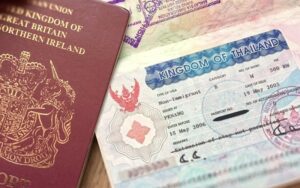Trade disputes are a common and significant aspect of commercial activity in Thailand, particularly as the country continues to expand its role as a regional and international trade hub. Businesses operating in Thailand—both domestic and foreign—regularly engage in complex commercial transactions involving goods, services, investments, and cross-border trade. When disagreements arise over contractual obligations, payment, quality of goods, or regulatory compliance, trade disputes can emerge. Understanding trade disputes in Thailand is essential for businesses seeking to protect their interests and resolve conflicts efficiently within the Thai legal system.
Legal Framework Governing Trade Disputes
Trade disputes in Thailand are primarily governed by the Thai Civil and Commercial Code, along with specialized laws related to trade, commerce, and international transactions. These laws regulate contractual relationships, commercial obligations, breach of contract, and remedies available to injured parties.
In addition to domestic laws, Thailand is a party to various international trade agreements and conventions, which may influence the resolution of trade disputes involving foreign parties. The legal framework aims to provide fairness, predictability, and enforceability in commercial dealings.
Common Causes of Trade Disputes
Trade disputes in Thailand arise from a wide range of commercial issues. Some of the most common causes include:
-
Breach of contract or failure to perform contractual obligations
-
Non-payment or delayed payment for goods or services
-
Disputes over quality, quantity, or specifications of goods
-
Delivery delays or failure to meet deadlines
-
Misrepresentation or fraud in commercial transactions
-
Disagreements over pricing, termination, or renewal of contracts
-
Intellectual property or trade-related regulatory issues
These disputes may occur between local businesses, foreign companies, or a combination of both.
Domestic Trade Disputes
Domestic trade disputes involve Thai entities operating within Thailand. These disputes are typically resolved under Thai law and may be handled through negotiation, mediation, arbitration, or litigation in Thai courts.
Thai courts have jurisdiction over most domestic trade disputes, and the Civil Court often handles cases involving commercial contracts and business conflicts. The courts apply the Civil and Commercial Code to determine liability and appropriate remedies.
Domestic trade disputes often emphasize contractual interpretation and evidence of performance or breach.
International and Cross-Border Trade Disputes
Thailand’s strong participation in international trade has led to an increase in cross-border trade disputes. These disputes may involve foreign suppliers, international buyers, joint venture partners, or multinational corporations.
Cross-border trade disputes often raise complex issues such as:
-
Choice of law and jurisdiction
-
Enforcement of foreign judgments or arbitral awards
-
Differences in legal systems and business practices
-
Compliance with international trade regulations
Thailand recognizes international arbitration and is a signatory to the New York Convention, making arbitral awards generally enforceable in Thailand.
Role of Contracts in Trade Disputes
Contracts play a central role in trade disputes in Thailand. Well-drafted contracts clearly define the rights and obligations of the parties, reducing ambiguity and the likelihood of disputes.
Trade disputes frequently arise when contracts:
-
Are poorly drafted or unclear
-
Lack dispute resolution clauses
-
Fail to address key commercial risks
Clear contractual terms on payment, delivery, quality standards, and dispute resolution are essential for effective dispute management.
Dispute Resolution Mechanisms
Thailand offers several mechanisms for resolving trade disputes, allowing parties to choose the most suitable approach based on the nature of the dispute.
Negotiation and Mediation
Negotiation and mediation are often the first steps in resolving trade disputes. These methods allow parties to maintain business relationships while reaching mutually acceptable solutions.
Mediation is encouraged by Thai courts and commercial institutions, as it is cost-effective and time-efficient compared to litigation.
Arbitration
Arbitration is a popular method for resolving trade disputes in Thailand, particularly for international and high-value commercial cases. Arbitration offers confidentiality, flexibility, and the ability to appoint arbitrators with specific expertise.
Thailand’s arbitration framework supports both domestic and international arbitration, and arbitral awards are enforceable under Thai law.
Litigation in Thai Courts
When alternative dispute resolution methods fail, trade disputes may proceed to litigation. Thai courts provide formal legal processes for resolving commercial disputes and awarding remedies such as damages or contract enforcement.
Court proceedings may take longer than arbitration or mediation, but they provide binding and enforceable judgments.
Remedies Available in Trade Disputes
Parties involved in trade disputes in Thailand may seek various legal remedies, depending on the nature of the dispute. Common remedies include:
-
Monetary damages for losses suffered
-
Enforcement of contractual obligations
-
Termination or rescission of contracts
-
Compensation for breach or non-performance
The court or arbitral tribunal assesses damages based on evidence of loss and the terms of the contract.
Trade Disputes and Regulatory Compliance
Some trade disputes arise from regulatory issues, such as import-export restrictions, customs compliance, or licensing requirements. Non-compliance with trade regulations can lead to penalties, contract termination, or disputes between trading partners.
Understanding Thailand’s regulatory environment is essential for preventing disputes and ensuring smooth trade operations.
Impact of Trade Disputes on Businesses
Trade disputes can significantly affect businesses, particularly in terms of financial losses, operational disruption, and reputational damage. Prolonged disputes may strain business relationships and divert management resources.
Effective dispute resolution helps:
-
Protect commercial interests
-
Minimize financial risk
-
Maintain business continuity
-
Preserve long-term partnerships
Businesses that proactively manage disputes are better positioned to succeed in Thailand’s competitive market.
Importance of Legal Assistance in Trade Disputes
Trade disputes in Thailand often involve complex legal, commercial, and procedural issues. Legal assistance is essential to navigate these challenges effectively.
Legal professionals can help with:
-
Contract drafting and review
-
Negotiation and settlement
-
Arbitration and court proceedings
-
Enforcement of judgments or awards
Early legal involvement can prevent disputes from escalating and reduce potential losses.
Preventing Trade Disputes
Prevention is a key strategy in managing trade disputes. Businesses can reduce the likelihood of disputes by:
-
Drafting clear and comprehensive contracts
-
Conducting due diligence on trading partners
-
Ensuring compliance with laws and regulations
-
Establishing effective communication channels
Proactive risk management strengthens commercial relationships and reduces conflict.
Conclusion
Trade disputes in Thailand are an inherent part of commercial activity in a growing and interconnected economy. Whether domestic or international, these disputes require careful handling within the framework of Thai law and established dispute resolution mechanisms. By understanding the causes, processes, and remedies associated with trade disputes, businesses can protect their interests, resolve conflicts efficiently, and maintain stable commercial relationships. With proper legal guidance and proactive planning, trade disputes can be managed effectively, supporting long-term business success in Thailand.






















